 Loading...
Loading...
Literature review report – Youth Risk Perception and Decision-Making Related to Health Behaviors in the COVID-19 Era
 Loading...
Loading...

 Loading...
Loading...
 Human Development has added two new faculty members this year, Misha Inniss-Thompson and Adam Hoffman. Click here to read more.
Human Development has added two new faculty members this year, Misha Inniss-Thompson and Adam Hoffman. Click here to read more.
 The Bronfenbrenner Center for Translational Research (BCTR) is launching a new project – the Community Neuroscience Initiative, (CNI) headed by four Human Development faculty, Anthony Burrow, Marlen Gonzalez, Eve De Rosa, and Adam Anderson. All have been engaged in STEM outreach and engagement and envision CNI as a way to build connections between neuroscience research, STEM education, and community empowerment. Click here to read more.
The Bronfenbrenner Center for Translational Research (BCTR) is launching a new project – the Community Neuroscience Initiative, (CNI) headed by four Human Development faculty, Anthony Burrow, Marlen Gonzalez, Eve De Rosa, and Adam Anderson. All have been engaged in STEM outreach and engagement and envision CNI as a way to build connections between neuroscience research, STEM education, and community empowerment. Click here to read more.

Concussion injuries among high school and college athletes have become a central concern in youth sports. Prompt self-reporting of a concussion immediately improves brain recovery and is necessary to reduce second-impact syndrome, rapid swelling of the brain after a person receives a second concussion before symptoms of the first concussion have subsided. Unfortunately, repetitive head injuries in adolescents and young adults are often underreported. Peter Ajayi, HD’19, David Garavito, JD/PhD ’21, and Valerie Reyna, professor of human development, are the first to detail an association between socioeconomic status (SES) and concussion reporting intentions among adolescents and young adults. Click here to read more.

Despite the restrictions on campus to prevent the spread of COVID-19, graduate and undergraduate students in Human Development persisted and excelled in their research and outreach activities. Click here to read more.
Human Development has added two new faculty members this year, Misha Inniss-Thompson and Adam Hoffman.
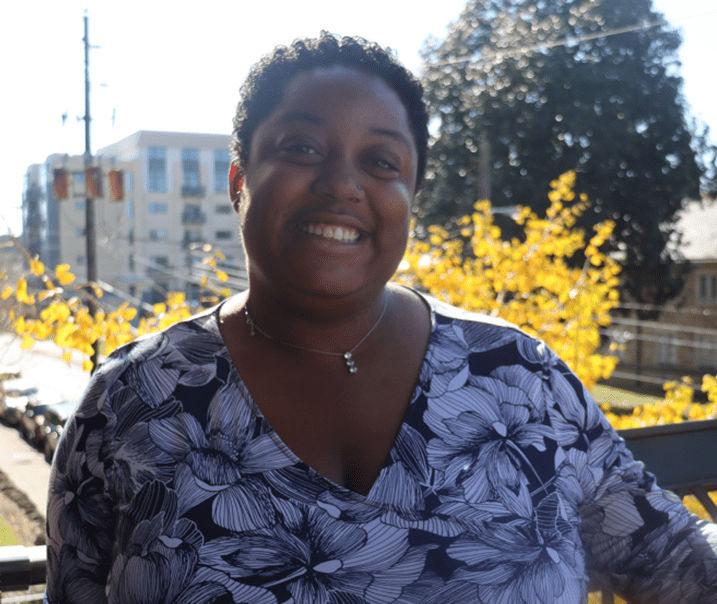
Dr. Misha Inniss-Thompson received her doctorate in Community Research and Action at Vanderbilt University. She is an alumnus of Cornell's Department of Human Development (with minors in Inequality and Africana Studies) and was awarded the Jerome Holland Award for her achievements as a scholar and leader and was a Ronald E. McNair Post-Baccalaureate Achievement Scholar.
Dr. Inniss-Thompson's work is concerned with shifting educational and social policies in ways that better support African-American girls. In particular, her research focuses on the impact of ethnic-racial socialization in shaping Black girls’ socioemotional wellbeing and academic outcomes. She has analyzed national education data and conducted interviews to understand the impact of these policies on the educational experiences of African American girls. Her report, Summary of Discipline Data for Girls in U.S. Public Schools: An Analysis from the 2015 - 2016 U.S. Department of Education Office for Civil Rights Data Collection, has been cited by legal scholars and the 2019 documentary, Pushout, for bringing to light inequities in school policies that "push" African-American girls out of the school system. Dr. Inniss-Thompson is interested in using ecological systems theory and culturally relevant positive youth development models as a tool for understanding Black girls’ experiences during the transition from middle childhood to adolescence. She is passionate about centering youth voices in the research process through methodological approaches such as photovoice and youth participatory action research.
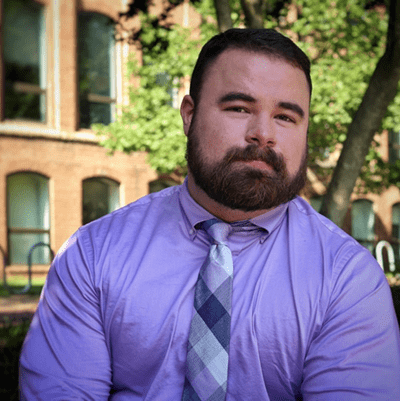
Dr. Adam Hoffman received his doctorate in developmental psychology from the University of North Carolina at Chapel Hill and has been an assistant professor of psychology at Western Carolina University. Dr. Hoffman's research addresses the development of identities and how they change over time, the relationship between identities and mental health, well-being, and academic motivation, and how identities can be leveraged to promote positive youth development and outcomes. In addition, he has analyzed social networks to investigate how peers and friends influence adolescents' ethnic-racial identity development. Although research has demonstrated that social identity can promote a more positive sense of self, Dr. Hoffman is one of few researchers who have been developing interventions that capitalize on this asset.
Dr. Hoffman has studied the psychological experiences of adolescents from a wide range of ethnic/racial groups, including African American, American Indian, European French, European American, Latinx, and North African French adolescents in American and international communities. He received a Graduate Research Fellowship and a Graduate Research Opportunity Worldwide award from the National Science Foundation (NSF) which enabled him to study ethnic and gender identity development in French and North African French adolescents in Marseille, France. For his dissertation, he developed a brief social-psychological intervention to promote STEM motivation and ethnic and gender identity among American Indian adolescents. Dr. Hoffman recently presented his research on child development within the Cherokee Indian community at the Carolina Consortium on Human Development - click here to watch his talk.
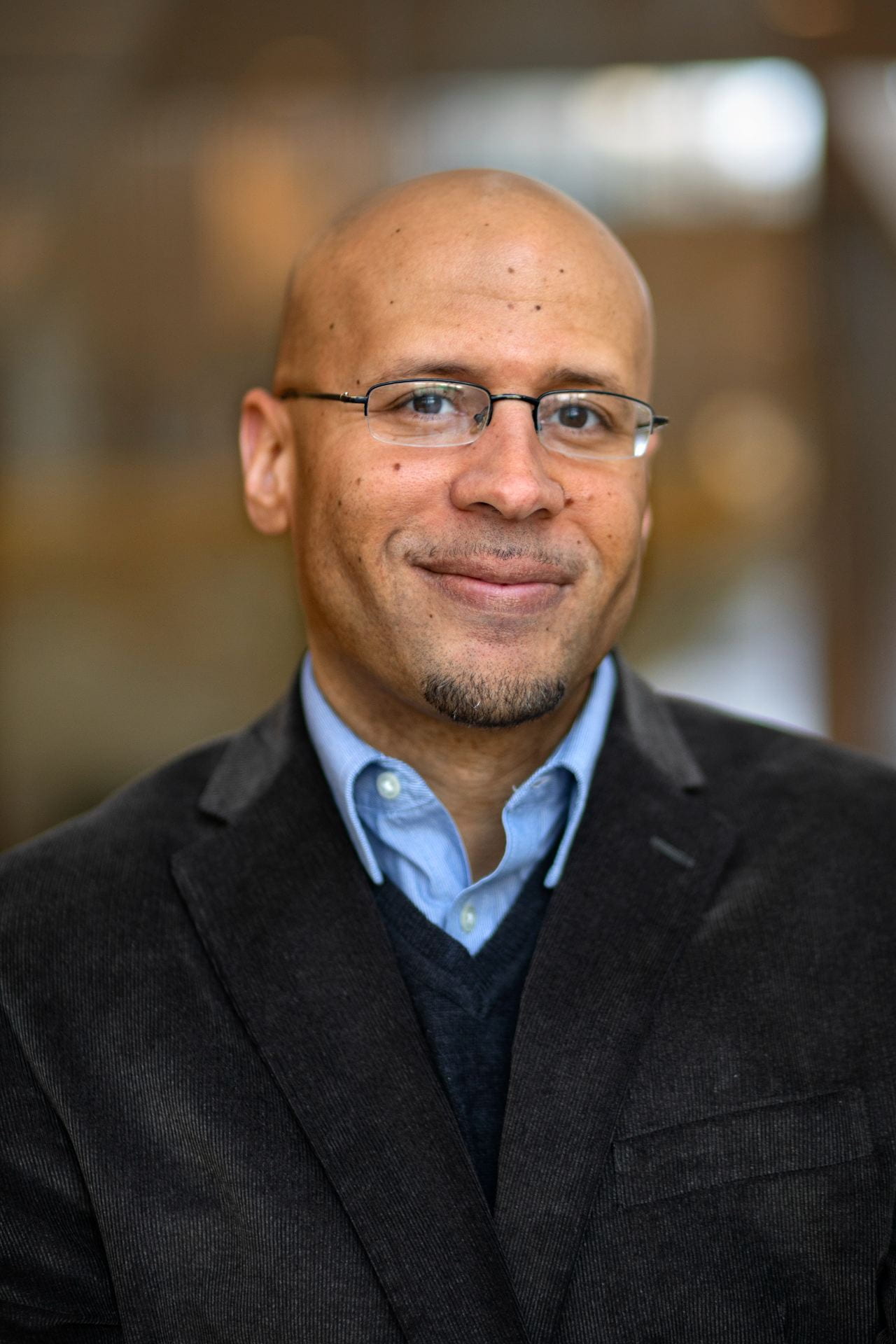
The Bronfenbrenner Center for Translational Research (BCTR) is launching a new project – the Community Neuroscience Initiative, (CNI) headed by four Human Development faculty, Anthony Burrow, Marlen Gonzalez, Eve De Rosa, and Adam Anderson. All have been engaged in STEM outreach and engagement and envision CNI as a way to build connections between neuroscience research, STEM education, and community empowerment. They are excited by community partnerships with scientists that lead to the inception of a project, in contrast to research that typically begins within the university and then involves a community.
Marlen Gonzalez, assistant professor of human development, received a 2021 Cornell Center for Social Sciences fellowship for her project, “The Neuroecology of Space Use, Belonging and Underrepresented Minority experience in Higher Education.” Although most colleges have offices for diversity and inclusion and have used
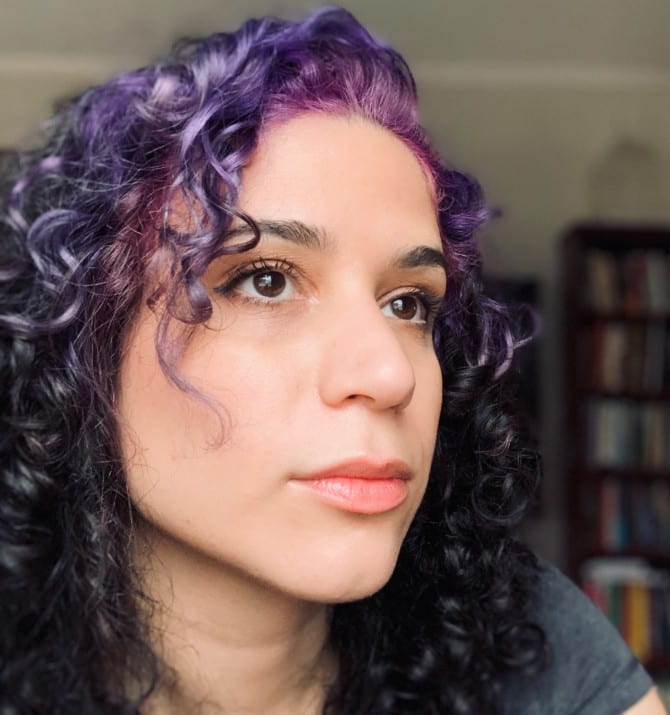
strategies to create a "sense of belonging" to improve racial disparities in graduation rates, they lack ways to implement neurological moderators. Dr. Gonzalez proposes a neuroecological model to facilitate students’ context-based memory and enhance connectivity between memory and motivational neural systems. This approach would study, for example, the ways in which the social and physical interactions of students in a college environment could impact the neurochemistry of the brain involved in memory and motivation. Dr. Gonzalez wants science about the brain easily understood by all people, not just scientists, and this knowledge can empower communities.
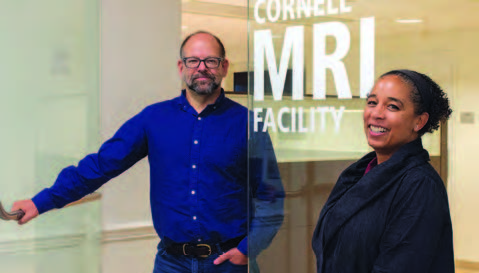
Eve De Rosa, Adam Anderson, and Anthony Burrow co-founded and co-direct, "The Brain Days Program." Dr. De Rosa has been a leader in the CHE community as Dean of Students and a Pathways to Social Justice fellow. She made headlines as the first woman, person of color, and professor from the College of Human Ecology (CHE) to be elected to Cornell's Dean of Faculty. She and Dr. Anderson co-direct the Affect and Cognition Lab (ACLAB). Dr. Burrow directs the BCTR and the Program for Research on Youth Development and Engagement (PRYDE).
As part of The Brain Days Program, once a month, a team of undergraduates travels from Cornell to the Syracuse Academy of Sciences charter school to deliver hands-on, interactive lessons to elementary students on topics such as parts of the brain, the way neurons in the brain connect to each other, and how the brain is involved in emotions and self-control. At the same time, the Cornell students work with Syracuse Academy of Sciences high school student interns who assist with the lessons. The lab has been collecting scientific data on the program, to assess, for example, whether the children enjoy the lessons, and if their academic performance is influenced by the Brain Days program.
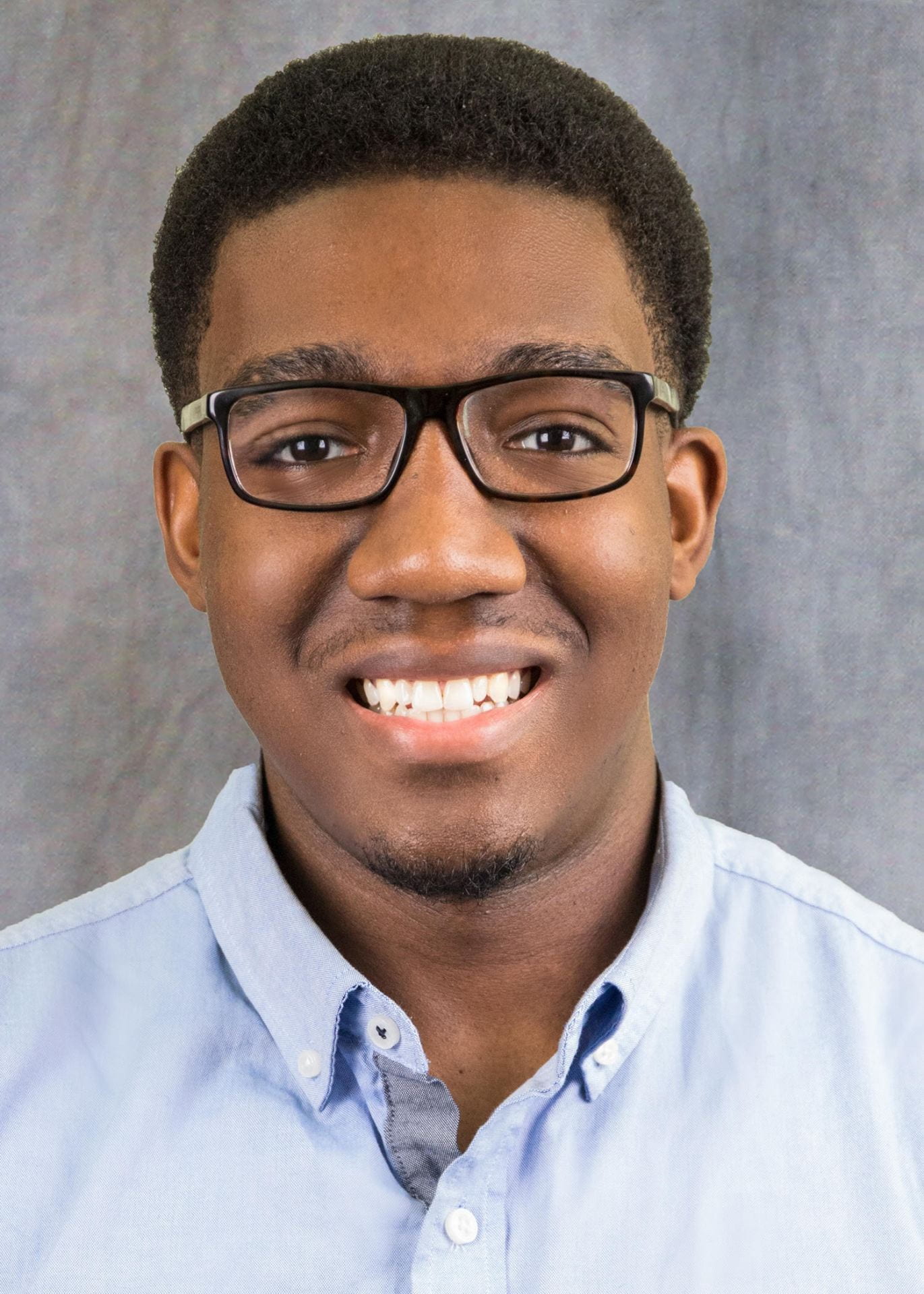
Concussion injuries among high school and college athletes have become a central concern in youth sports. One of the most important decisions an athlete can make is whether to report a concussion to the coach. Prompt self-reporting of a concussion immediately improves brain recovery and is necessary to reduce second-impact syndrome, rapid swelling of the brain after a person receives a second concussion before symptoms of the first concussion have subsided. Unfortunately, repetitive head injuries in adolescents and young adults are often underreported. Peter Ajayi, HD’19, David Garavito, JD/PhD ’21, and Valerie Reyna, professor of human development, are the first to detail an association between socioeconomic status (SES) and concussion reporting intentions among adolescents and young adults. (https://onlinelibrary.wiley.com/doi/10.1002/bdm.2235).
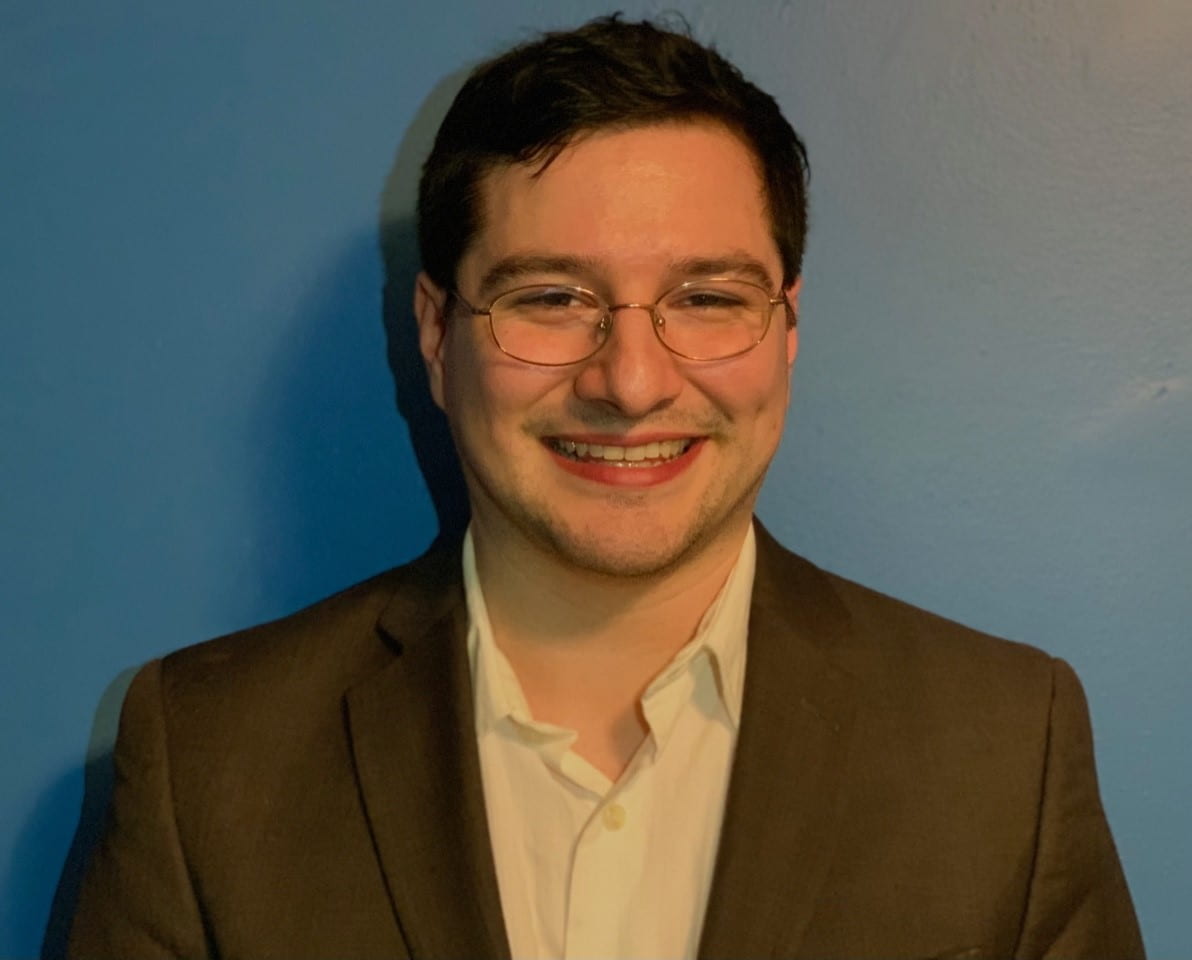
Dr. Reyna and her students incorporated Fuzzy-Trace Theory (FTT) (Reyna, 2012) into the research to capture important unexplained variance in the self-reporting of concussions. According to FTT, when people make decisions, they process the information in two ways, as "gist," or its bottom-line meaning, and "verbatim," or its superficial details. The gist and verbatim formats are encoded and retrieved from memory separately. Gist processing is a more developmentally advanced form of reasoning that reflects education, culture, beliefs, and other life experiences. As people age, they increasingly rely on gist, rather than verbatim, processing of information which leads to healthier intentions and behaviors. Although adolescents and adults process information as gist and verbatim, adolescents are more likely to rely on verbatim processing and the finer distinctions of the tradeoff between risks and rewards when making decisions (e.g., "The chance of something awful happening to me is very low, so I can take a chance.") whereas adults are more likely to rely on a simple, qualitative categorical gist of risk (e.g., "There is a chance of a catastrophic outcome, and I should avoid putting myself in harm's way at all costs.")
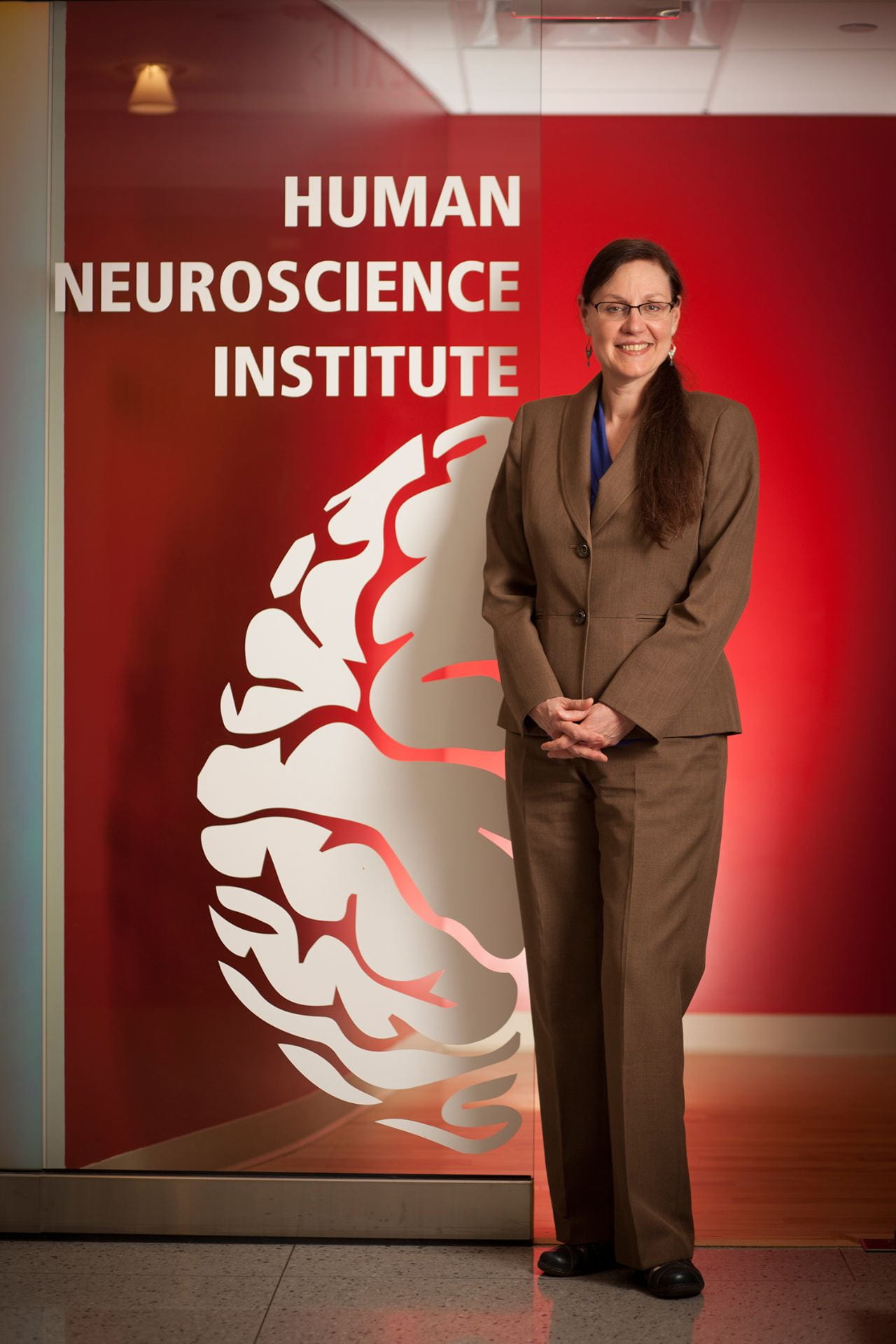
This is the first study to propose and demonstrate a link between SES and reporting intentions. They hypothesized this connection because of putative effects of SES on cognitive development, namely, on gist processing. Based on FTT, categorical gist processing and gist principles of risk avoidance are predicted to develop with experience from childhood through adulthood and to promote healthy decision-making. Low SES, they posited, offers fewer opportunities for enriching experiences, on the one hand, and greater exposure to stressors, on the other hand, delaying cognitive development. This is consistent with previously reported SES differences in gist processing. Consequently, they expected that SES operating through gist processing, such as the categorical insight that a concussion can produce life-altering brain damage, would be associated with higher reporting intentions. High-school and young adults in their study completed a survey about concussions and sports. Overall, for each of the two age groups, and for athletes as well as nonathletes, SES was associated with reporting intentions. It was the responses to questions on gist processing, concussion knowledge, and healthier attitudes about concussions that were each associated with greater intentions to report concussions. Ajayi, Garavito, and Reyna conclude in their paper that although educational initiatives currently focus on rote knowledge of concussions and healthy attitudes to reduce the underreporting of concussions, they recommend that future interventions use gist to communicate risk, especially to low SES youth by adapting successful FTT-based risk-reduction curricula from other domains.
Peter Ajayi received a post-baccalaureate, NIH Intramural Research Training Award to study the myofibrillar and mitochondrial networks within skeletal muscles using advanced imaging methods at the NIH National Heart, Lung, and Blood Institute. He is currently attending Warren Alpert Medical School of Brown University.
David Garavito received his J.D. from Cornell Law School in 2020 and received his Ph.D. this year from the Law, Psychology, and Human Development Program at the Laboratory for Rational Decision Making at Cornell University. His research examines the perception of risks and risk-taking within the context of sports and the cognitive and neural effects of concussive and sub-concussive injuries.
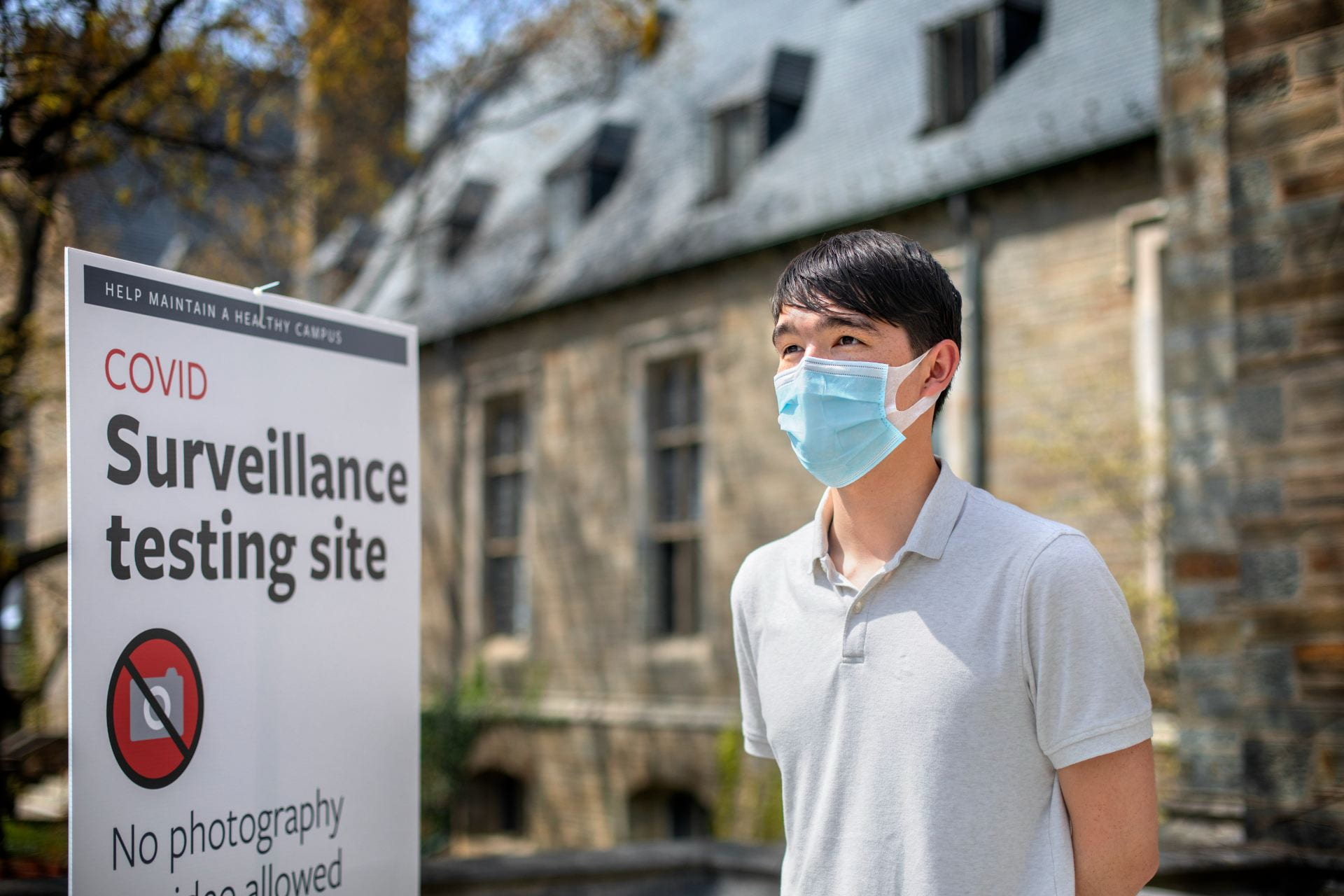
Despite the restrictions on campus to prevent the spread of COVID-19, graduate and undergraduate students in Human Development persisted and excelled in their research and outreach activities.
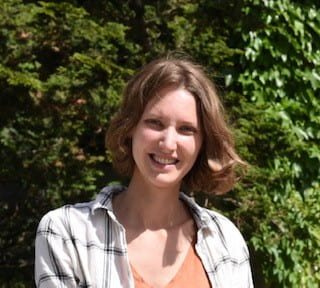
Celine Cammarata, HD-PhD '21, a student of Professor Eve De Rosa, received a 2021 FABBS Doctoral Dissertation Research Excellence Award for her thesis, The role of acetylcholine in flexible cognition across age and species. The Federation of Associations in Behavioral & Brain Sciences (FABBS) is a coalition of scientific societies focused on conducting advocacy, education, and communication activities in support of the sciences of mind, brain, and behavior. Recognizing and bringing attention to the work of early-career scientists is a critical part of their mission. Dissertations are evaluated in terms of both the scientific merit and the broader societal impact of the research. Celine reflected on her graduate school experience, career exploration, and professional development in an interview for the Graduate School - click to read more.

Elyse Ganss '21 received the Zuckerman Award for Excellence in Human Development Studies for her senior honors thesis. As a member of The Little Thinkers lab, Elyse studied the effect of role models on young girls' persistence and engagement in science (click this link to watch her presentation). In addition to her major in human development, Elyse completed minors in psychology and communications. She is a member of the Psychology Honors Society and is involved with the Steminist Movement, an outreach organization that promotes STEM activities for middle school girls. Elyse hopes to obtain a Ph.D. in Clinical Psychology.

Judy Liu ‘21 received the Human Ecology Alumni Association's 2021 Outstanding Senior Award for outstanding student leadership, academic achievement, and commitment to the College and community. Judy was able to balance the coursework and research for the major in human development and minors in education and gerontology with numerous community engagement activities, including, Big Brothers Big Sisters of Ithaca and Ballet and Books. In her junior year, Judy was a PRYDE Scholar, awarded by the Program for Research on Youth Development and Engagement (PRYDE) in the Bronfenbrenner Center for Translational Research, and worked in Professor Tamar Kushnir's Early Childhood Cognition Lab. She studied children's beliefs about free will and how children aged 7-11 years old thought about themselves, the people in their lives, and the world during the pandemic. To learn more about the PRYDE Scholars program, click this link to hear this year's scholars discuss their experiences.
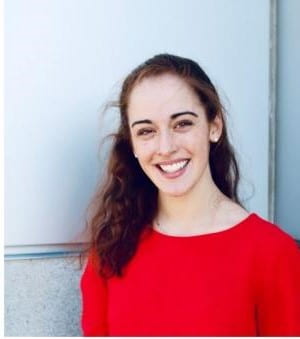
Joanna Papadakis ’21 received the 2021 Cornell Campus-Community Leadership Award, an honor given by the Division of University Relations to a graduating senior who has shown exceptional town-gown leadership and innovation. She and students in the Masters of Public Health worked with the Tompkins County Health Department and Office of the Medical Examiner to develop a coordinated worst-case emergency plan for Tompkins County. Joanna's experience collaborating with the local community, her understanding of the culture, and her problem-solving approach made her an invaluable asset to the project. She was interviewed by Gary Stewart of the Cornell University Community Relations Group on his radio program, "All Things Equal." Click this link to hear the podcast.
 Cornell Undergraduate Research Board (CURB) Symposium was held virtually on May 4-7. For over 35 years, in one of Cornell's largest undergraduate research colloquiums, hundreds of undergraduates from all majors and disciplines have the opportunity to share their research with the Cornell community in a poster competition. Five students from Human Development gave presentations by Zoom which can be viewed by clicking on the name of each student below:
Cornell Undergraduate Research Board (CURB) Symposium was held virtually on May 4-7. For over 35 years, in one of Cornell's largest undergraduate research colloquiums, hundreds of undergraduates from all majors and disciplines have the opportunity to share their research with the Cornell community in a poster competition. Five students from Human Development gave presentations by Zoom which can be viewed by clicking on the name of each student below:
Charlotte Borgers ’21, Preschoolers Reasoning about Food: The Roles of Health, Desirability, and Permissibility
Emi Carpenter ’23, Project GripTape: Exploring the Role of Passion Projects in Positive Youth Development
Elyse Ganss '21, Starting Young: How Early Role Models Impact Young Girls' Persistence in Science
Catherine Gorey '21, Stereotypes and Sexism: Gendered Power Dynamics in Perceptions of Workplace Sexual Harassment Accusations
Phil Martinez '21 Norms for Emotion-False Memory Lists and Semantic and Phonological False Memory
 Valerie Reyna leads discussions about communicating the risks of COVID-19 to the public.
Valerie Reyna leads discussions about communicating the risks of COVID-19 to the public.
 Karl Pillemer of the Cornell Reconciliation Project writes about how the COVID-19 crisis has led some people to reconcile with their families.
Karl Pillemer of the Cornell Reconciliation Project writes about how the COVID-19 crisis has led some people to reconcile with their families.
 Qi Wang articulates the role of cultural psychology in bridging cultural gaps in psychological research and in society.
Qi Wang articulates the role of cultural psychology in bridging cultural gaps in psychological research and in society.
 Marianella Casasola shows how multisensory play in naturalistic settings is fundamental to the early development of visual-spatial abilities.
Marianella Casasola shows how multisensory play in naturalistic settings is fundamental to the early development of visual-spatial abilities.
 Wendy Williams and Jane Mendle contribute to our understanding of the career challenges women in academic sciences face and the way forward.
Wendy Williams and Jane Mendle contribute to our understanding of the career challenges women in academic sciences face and the way forward.
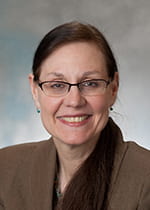 Valerie Reyna, Lois and Mel Tukman Professor of Human Development, Director of the Human Neuroscience Institute, and Co-Director of the Center for Behavioral Economics and Decision Research, was invited to moderate the symposium “Responding to COVID-19: Emerging insights from social, behavioral and economic sciences,” for the National Academies of Sciences, Engineering, and Medicine. You can watch the video recording below:
Valerie Reyna, Lois and Mel Tukman Professor of Human Development, Director of the Human Neuroscience Institute, and Co-Director of the Center for Behavioral Economics and Decision Research, was invited to moderate the symposium “Responding to COVID-19: Emerging insights from social, behavioral and economic sciences,” for the National Academies of Sciences, Engineering, and Medicine. You can watch the video recording below:
Refer to Dr. Reyna's publications to learn more about her Fuzzy-Trace Theory approach to decision making about COVID-19 risk:
Reyna, V. F. (2020). A scientific theory of gist communication and misinformation resistance, with implications for health, education, and policy. Proceedings of the National Academy of Sciences of the United States of America. Advance online publication. https://doi.org/10.1073/pnas.1912441117
Reyna, V. F. (2020). Decision making about risk in the era of the novel coronavirus disease. CHEST, 158(4), 1310-1311. https://doi.org/10.1016/j.chest.2020.07.005
Reyna, V. F. (2020). Of viruses, vaccines, and variability: Qualitative meaning matters. Trends in Cognitive Sciences. Advance online publication. https://doi.org/10.1016/j.tics.2020.05.015
Dr. Reyna also chaired the symposium, "Theories of medical decision making: Explaining, predicting, and improving health and healthcare" at the 42nd Annual Meeting of the Society for Medical Decision Making. You can watch the video recording below:
Below is one of Psychology Today's top blog posts of 2020 by Karl Pillemer, Hazel E. Reed Professor in the Department of Human Development, Professor of Gerontology in Medicine at Weill Cornell Medicine and author of Fault Lines: Fractured Families and How to Mend Them.

In the very dark cloud of the coronavirus pandemic, it is hard to find a silver lining. One positive glimmer, however, has recently come to my attention.
Over the past five years, I have conducted a series of studies to shed light on the problem of estrangement in families, focusing in particular on the experience of people who have reconciled successfully. Friends and colleagues who know of my interests have contacted me with interesting news: They reconciled because of the crisis.
For these individuals, the pandemic brought about renewed contact with a relative after years, and sometimes decades, of estrangement.
I heard from a daughter whose rift was caused by bitter arguments over the Trump presidency. She was the lone progressive in a family of Trump supporters. Even if she tried to avoid political debates, her family provoked her until she took the bait. Unable to avoid arguments with her father in particular, she cut him off and stopped visiting. “We had a pretty good relationship until 2016,” she told me.
Her concern about her parents prodded her to reach out when the crisis began: “I called them and told them I was worried about them. We had the first good talk in a couple of years. I just said to my dad: ‘Let’s help each other now. How about if we stop talking about abortion or immigration?’ To my surprise, he agreed.”
Siblings, too, have been pulled back into family networks. I learned of a brother who was cut off by the family after traumatic events two decades ago. He was included on the family email round-robin about coping with the pandemic and, to everyone’s surprise, joined in. Similarly, two sisters who had grown apart since leaving the parental home called one another and compared their experiences—and made plans to get together.
I was not surprised, having surveyed more than 1,700 people about their experiences of estrangement and reconciliation (the findings will appear in a forthcoming book). I learned that one of the major reasons for bridging a family rift was a nagging sense of anticipated regret.
Usually, we think of regret as believing that our current situation would have been better if only we had made a different decision. Research shows, however, that anticipating regret can be a powerful motivation for action. When people are faced with difficult decisions, a critical factor for many is the regret they think they may feel in the future for an action taken or not taken now.
There’s another factor that promotes the urge to reconcile during this crisis. The extensive research on the concept of “socioemotional selectivity” suggests that when people perceive the time horizon as short, they place a higher value on interpersonal relationships, including those with family members.
This pattern is precisely what I found in my research on people who reconciled. Many were prompted by a revelation that “life is short.” Often, they could point to a particular moment when that sentiment hit home. A common impetus was a serious health problem—their own or their relative’s. When illness struck, they realized it would soon be forever too late to apologize, to forgive, to pick up the phone, or to send the conciliatory letter that’s been sitting on the hard-drive for years. They reached out, and many times they bridged the rift.
Therefore, a powerful motivation for taking the first, tentative step is a small, recurring voice murmuring, “Will I be consumed with regret if I wait until it’s too late to reconcile?” Based on the admittedly small sample from my own social network, precisely this motivation is activating family members to ask: “Are the old grievances and grudges really worth it? If I don’t reach out now, will COVID-19 make it too late?”
A psalm has this famous request: “Teach us to number our days, that we may gain a heart of wisdom.” An unexpected result of the pandemic can be families coming together who have suffered through painful rifts. My reconciled respondents would endorse taking advantage of such a golden opportunity to heal a fractured family.
Qi Wang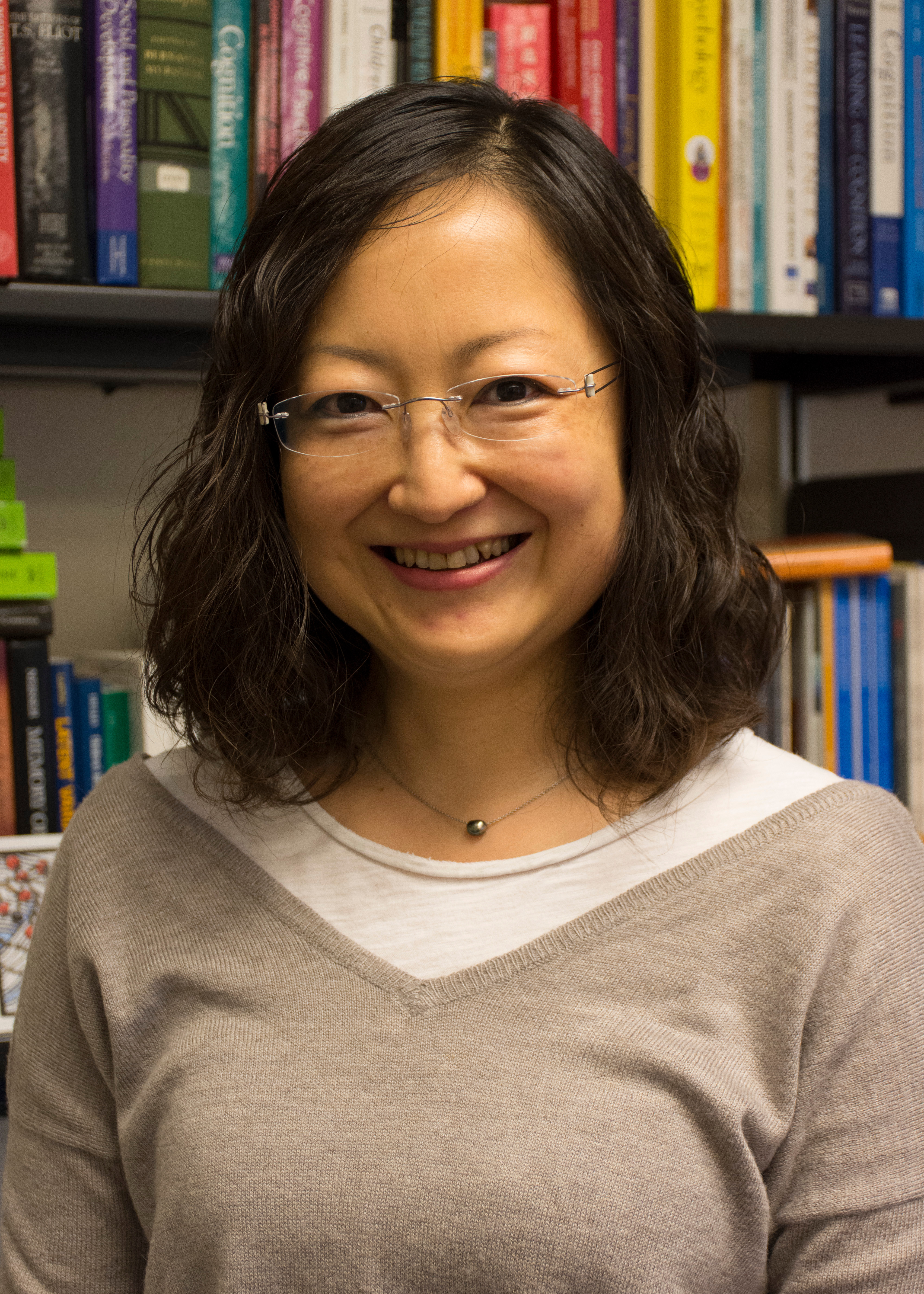 , Human Development Chair and Professor, and Director of the Culture & Social Cognition Laboratory is a leading researcher in the study of memory and culture. In January 2021, Dr. Wang begins a 5-year appointment as Editor of the Journal of Applied Research in Memory & Cognition (JARMAC) JARMAC is the flagship journal of the Society for Applied Research in Memory and Cognition, an international organization for researchers who study memory and cognition in the real world.
, Human Development Chair and Professor, and Director of the Culture & Social Cognition Laboratory is a leading researcher in the study of memory and culture. In January 2021, Dr. Wang begins a 5-year appointment as Editor of the Journal of Applied Research in Memory & Cognition (JARMAC) JARMAC is the flagship journal of the Society for Applied Research in Memory and Cognition, an international organization for researchers who study memory and cognition in the real world.
Wang discusses the limited generalizability of psychological research based on research subjects from Western Educated Industrialized Rich Democratic (WEIRD) societies in a podcast, "WEIRD Psychology" for the Australia Broadcasting Company's radio program, "All in the Mind with Lynne Malcolm". Top international journals publish predominantly WEIRD psychological research which is problematic because these populations are not representative of universal human populations. Wang explains how cultural psychology can address the problem. Click the arrow below to listen.
In a recent paper, Wang demonstrates how her study goes beyond WEIRD psychology by examining the effects of age, gender, ethnicity, and education on the recognition of bias in one's self versus in others. This research is timely and has direct relevance to understanding and addressing social tensions that arise from claims of bias or discrimination that in turn lead to social polarization. Wang and co-author, Hee Jin Jeon, examined whether people recognize "myside bias" (a tendency to process information in a way that supports one's own position) and "social bias" (prejudices against others based on gender, age, race, or social class) in their own thinking and behaviors as well as in those of others. They found that people attributed more biases to others than to themselves and this was more pronounced among people with strong beliefs about the existence of biases.
Also, Wang and Jeon discovered demographic differences in the perception of biases. Older adults, relative to younger adults, perceived greater myside bias in themselves and others. Similarly, people with lower levels of education perceived greater myside bias in themselves and others than those with higher levels of education. Women perceived greater myside bias than did men. They also found differences among ethnic groups; Caucasians perceived the greatest myside and social biases in themselves and others and Asians the least, with Hispanic and African Americans falling in between. Wang and Jeon suggest that bias recognition is not just the result of human cognition, but may also be affected by sociocultural factors. They call for more research to better understand these demographic differences.
Wang and Jeon also reported encouraging results of a potential intervention for reducing the lopsided bias in bias recognition. They asked participants to simultaneously judge their own and other people's thoughts, feelings, and behaviors in a situation where myside bias might occur. They discovered that when people were able to see things from the perspective of others, it raised their "social mindfulness."
Reference cited in this article:
Wang, Q., & Jeon, H. J. (2020). Bias in bias recognition: People view others but not themselves as biased by preexisting beliefs and social stigmas. PLOS ONE, 15(10), e0240232. https://doi.org/10.1371/journal.pone.0240232